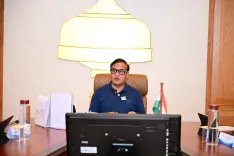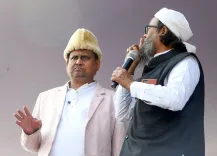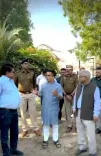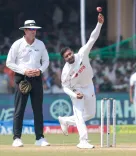Why Has YouTube Blocked Six Bangladeshi TV Channels in India?
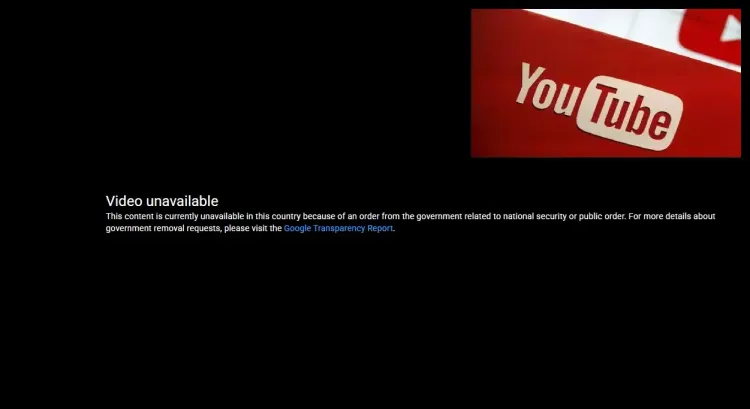
Synopsis
Key Takeaways
- YouTube has blocked six Bangladeshi TV channels in India.
- The Indian government cited national security and public order as reasons for the block.
- A total of 640 journalists have faced targeting under the interim government.
- The situation raises serious concerns for press freedom in Bangladesh.
- Geo-blocking restricts access to content based on geographical location.
Dhaka, May 10 (NationPress) YouTube has imposed restrictions on at least six Bangladeshi television channels within India following a takedown request from the Indian government, citing national security and public order concerns, according to reports from Bangladeshi media on Saturday.
The Bangladeshi TV news channels affected by this block in India include Jamuna TV, Ekattor TV, DBC News, Somoy TV, BanglaVision News, and Mohona TV. While four of these channels became unavailable on Friday, two additional channels, DBC News and Somoy TV, were added to the list on Saturday.
Geo-blocking is a tactic used to limit online content based on a user's geographical location. In this case, these Bangladeshi TV news channels remain accessible globally, with the exception of India.
The Indian government has previously taken similar actions against Pakistani YouTube channels for allegedly disseminating provocative or misleading content.
At the same time, the Bangladeshi press is enduring systematic and organized repression under the Interim Government led by Chief Advisor Muhammad Yunus. In the first eight months of his administration, a total of 640 journalists have been targeted, with attacks including criminal cases against 182 journalists, violence against 206, denial of accreditation to 167, and inquiries initiated against 85 senior journalists by the Bangladesh Financial Intelligence Unit and anti-terror and anti-money laundering units.
Analysts suggest that the media landscape in Bangladesh has been effectively silenced by Yunus, as journalists have faced immediate dismissal based on the arbitrary decisions of the leaders of the Anti-Discrimination Students Movement, who have become influential decision-makers.
Led by Hasnat Abdullah, activists of the Anti-Discrimination Students Movement have not only targeted independent newspapers but have also intruded into TV stations, coercing owners to dismiss journalists without justification due to threats from student protestors.
“The current suppression of press freedom in Bangladesh is unprecedented. An atmosphere of fear envelops journalists, making critical reporting on the Interim Government nearly impossible. Following Awami League activists, journalists face severe risks under Dr. Yunus's administration,” stated Suhas Chakma, the Director of the Rights and Risks Analysis Group (RRAG).
He claims that Yunus is targeting the truth-tellers of Bangladesh, leaving journalists and news channels in a dire situation while under immense pressure from the interim government.






